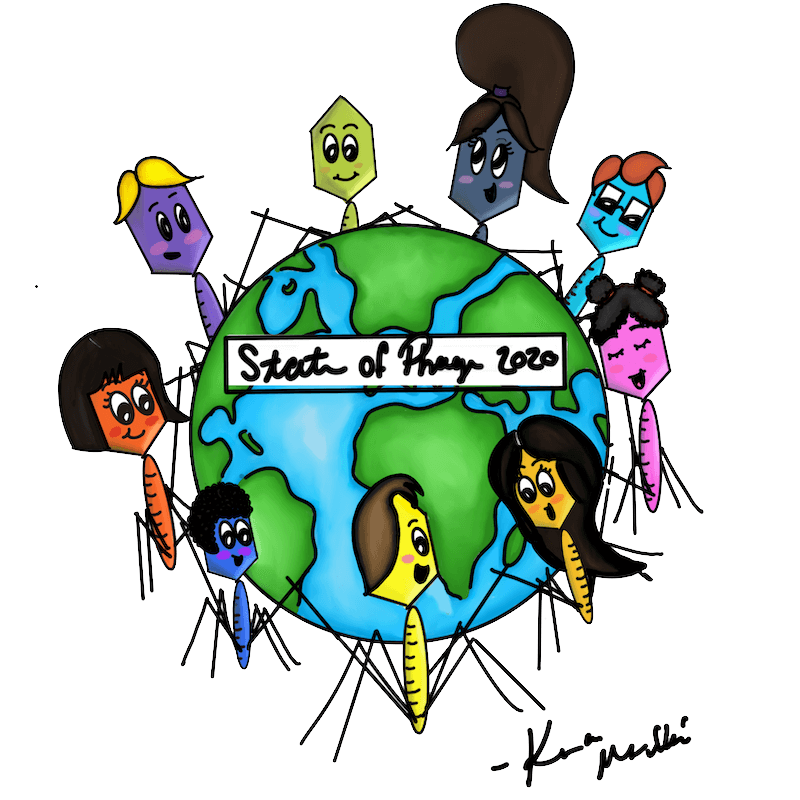Happy New Year everyone! After a great couple of weeks reflecting on our 2020 prides and joys, we wanted to take this January 1st opportunity to share what we’re excited about for 2021. We’ve got some exciting new upgrades in store for you this year!
A shift toward community-contributed content
What started as a list of phage researchers, then evolved into a newsletter to keep these researchers informed, has become a living and breathing community full of people willing to help each other get further in their phage research and development. To fit this new reality, in 2021, you can look forward to a much more interactive experience on phage.directory (coming soon!).
Find and share your favourite phage articles, protocols, and videos, and show off your work
Capsid & Tail is full to the brim with our favourite phage news and research articles, but there’s much more going on than we can fit in a single newsletter. Plus, we want you to get a diversity of opinions on what’s important, and that means gradually handing the reins over to the community (currently, our awesome group of volunteers does this — reach out if you’d like to get involved!). Soon, Phage Directory members will be able to share and discuss interesting papers, protocols, recorded talks, events, jobs, and more. You’ll be able to search for what you need, exchange thoughts with your fellow community members, and bookmark what you like for later. Meanwhile, Capsid & Tail itself will evolve into a curated sampling of the best phage community-generated content over time.
Teach newcomers how it’s done by hosting your own webinars and workshops on Phage Directory
We’re excited to partner with community members to bring their visions of phage courses, workshops, conferences, and webinar series to life (e.g. host your own iVoM or PHAVES!). You decide what to cover, who to invite, and how to present it, and we’ll help you pull it off easily while making sure everyone knows about it.
Get your phages sequenced, imaged & more
Have you been trying to find an affordable way to get your phage TEM or sequencing done? We’ve heard this from many of you (thanks to your generous State of Phage 2020 responses!), so we’ll be partnering with groups that provide affordable, high quality phage services. You’ll be able to order what you need from trusted sources that support the phage community, and get your phage research done faster.
Offer your services to the phage community
We’re working with select partner research labs, phage banks, and companies to offer their phage-related products and services (even phages and strains themselves!), to help partners share their expertise with the community and broaden their impact. If you’ve got something to offer the phage community, let’s talk!
Update your profile as you collect phages, expertise & accomplishments
As a member, you’ll be able to log in and update your Phage Directory profile at will, including adding your phage hosts and even your individual phages once you’re ready to share them with the community.
Get recognized for your contributions
Recognition of the hard work you put in to build up our field is essential. We’ll be recognizing the work of those who consistently contribute to the community by sharing, helping others, and more.
Let’s eliminate antibiotic resistance together
Up to now, we’ve focused on gathering phage researchers and biotech professionals into a central nucleus. We’re really happy with the results so far! Now that we’re all here, going into 2021, it’s time to leverage this momentum into more tangible progress for the field. We’re excited to help equip the community with the knowledge and tools to overcome the challenges of phage research, to help someone else overcome theirs, and to help ensure all this progress compounds over time.
And let’s not forget the larger reason why we’re all doing any of this. As phage researchers, developers, and supporters, at all career stages and from all countries, each of us has the capacity to help prevent deaths from antibiotic resistant bacteria. By organizing ourselves around this common purpose, we’re building a safety net that doctors and health systems globally can turn to when antibiotics fail. The outline of that safety net is already in place, and every researcher that gathers a new piece of information about their phage or their host system is filling in part of that tapestry.
We’re here to give this constant, distributed stream of incremental progress the best possible chance at compounding into a body of knowledge we can all use. Like eliminating the coronavirus, eliminating the threat of antibiotic resistance will take a global effort. Well, this is that effort — you’re already a part of it. Thanks for being here, and cheers to what we can all do in another year!
— Jess and Jan <>{








